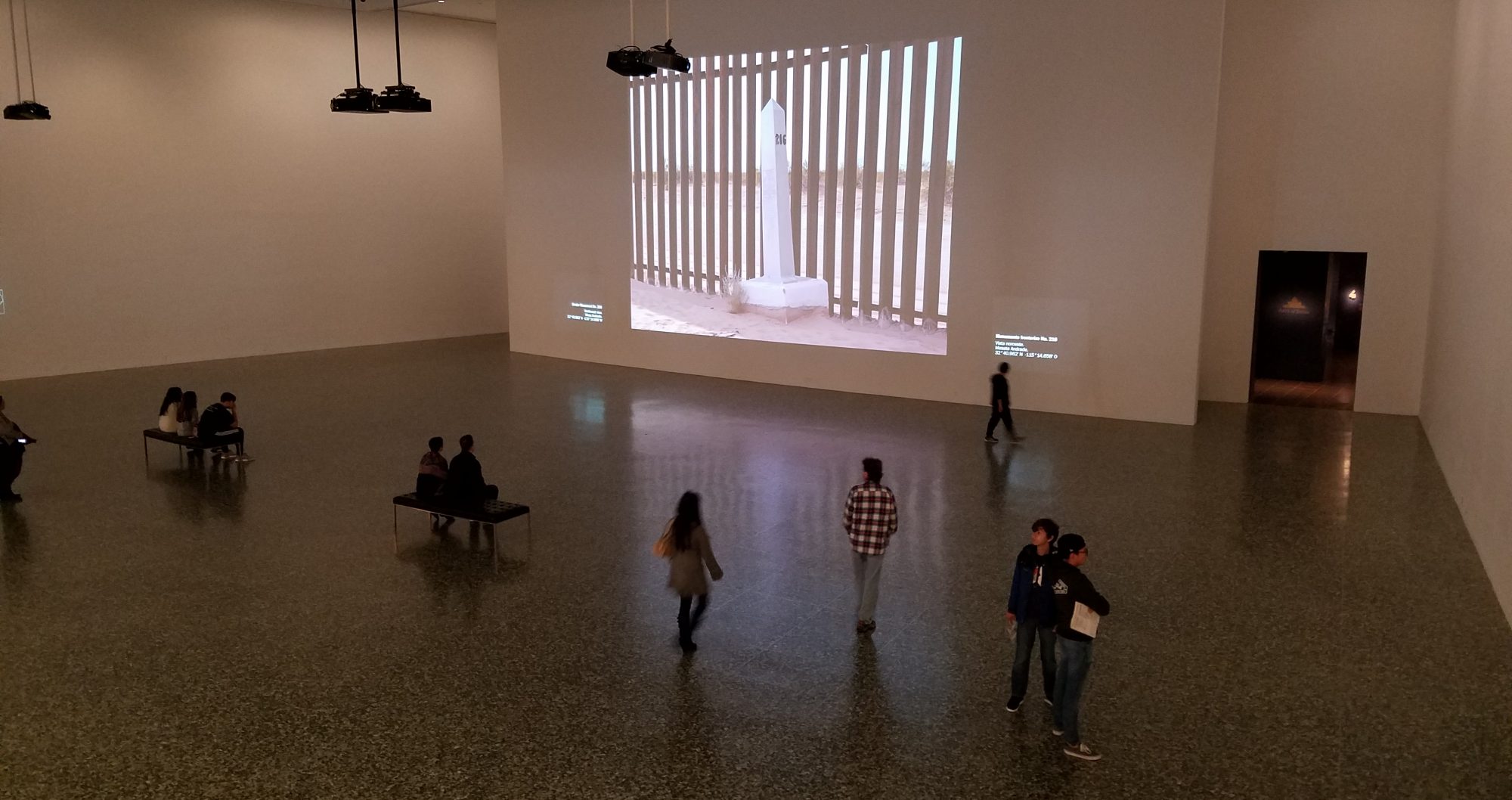Today is Saturday, April 11, 2020, and for exactly one month, I haven’t ventured past a 5 mile radius of my house. COVID19 is present in our lives and it is making very clear that it does not intend to leave anytime soon, despite what some might believe. This is our new normal, or as my wife likes to say, our “new dynamic.” It has been one month since I have seen my work office 90 miles north at the Sam Houston State University campus. It has been a month since I been in close physical presence with my faculty colleagues, many which I consider close friends. It has been a month since I have enjoyed taking a nice morning run with members of my running club, bragging about race results and paces. It has been a month since I entered a sanctuary of worship, being able to share in prayer wishes for peace among a community. One month. Another month seems very apparent and possibly more after that.
Despite the dire outlook of the above description, I have strangely found inner peace that can only come when one is sequestered in their home for a good amount of time. My “new dynamic” has now become a routine day during this time. I typically get up around 6:30am. Go downstairs, make a cup of coffee (really, a cup of cream with coffee), toast some protein waffles, turn on the computer, walk the dog, shower, get dressed, then work on my computer usually from 8:30am-4:00pm. Trying to keep a regular routine has helped me handle the uncertainty that this moment in time is bringing me. While COVID19 is obviously on my mind as well as everyone else, I often feel anxious on the social outcomes this might lead to in our society. What if the idea of social distancing continues well past the pandemic? There is already talk about eliminating handshakes, which for a Latino, is extremely difficult to process since our cultural expressions of welcome and love include physical human touch. My daily routine usually ends with reflection on if I am ready for this. However, my new dynamic has allowed me the behaviors which I practice to settle my anxieties – meditation and reflection.

In my new weekly routine, I have marked out days of the week where I allow myself to practice meditation and reflection. Typically, when I can, these occur in the early week (Tuesday) and before the weekend (Thursday). On these days during the evenings, I try to my best ability to find space to allow myself to read, listen to music, and to write notes or short statements on what I am reflecting on that day or week. One theme that I have notice in this month of “stay at home” is my deep appreciation for the friendships I have developed with a variety of people. Friendships that have stood the test of time, friendships that have been rooted since elementary school, friendships that just developed this past month, and friendships that include individuals who are more than friends to me – they are family. The theme of my weekly reflections have routinely included appreciation of those who I call friends. During these times, I feel like I am observing a world akin to the image above. We are surrounded by uncertainty and disturbances and we know that a storm may be approaching….yet, despite this gloom, there can be found beauty and a certain degree of peace. That peace for me comes from my weekly reflections on friendship and the act of opening your heart to extend friendship to one who was once a stranger and the act of hospitality, where you welcome others into your community, house, and for a fortunate few, your inner soul.
One book that I completed during this time is “How to Live: What the Rule of St. Benedict Teaches Us About Happiness, Meaning, and Community” by Judith Valente (2018). In my continued study of St. Benedict which started before the pandemic, I started framing our COVID19 era within the teachings of St. Benedict and The Rule. My regular readings of The Rule and books and essays using Benedictine teachings as ways to live a meaningful life has been important to me in deciphering everything that is occurring today. In her book, Valente uses The Rule to describe key moments in her journey to renew her spirit and reframe her busy life as an award-winning journalist into one where work and spirituality (which included prayer) coexist. Prayer and work – ora et labora – is the Benedictine motto Valente uses to frame her encounters with monks (brothers and sisters at various monasteries in the United States) and normal everyday folx who she uses as examples of the simple life that St. Benedict wished upon his fellow monks. Work that provides life, not life that provides work. Valente finds that her work as a career-rising journalist was not fulfilling as she wished, despite her achievements and awards. She desired her work to provide more than income and awards, she wanted her journalism work to provide meaning to the community. What she noticed and forgot during her early career was how her work provided meaning to her. Thus, embarked her journey in becoming an oblate (i.e., a layperson who commits spiritually to an monastery and its Order) to a small monastery in Kentucky. In her book, she uses this phase of her life journey to reflect on different chapters and teachings from St. Benedict’s The Rule. One important theme I found in reading “How to Live” is that a central answer to the book’s title is life is lived when you surround yourself with friends. Friends of all types and at all levels. Friends who you see or text everyday. Friends you have not seen in 20 or more years, but you know if you saw each other, it would be like yesterday since you last met. Friends who comfort you, even when you did not know you needed comfort. Friends who you know that after that first meeting, you become someone who “is a stranger but once” (Valente, 2018, p. 127)
When I read that quote during my meditative reading, I immediately fell in love with it. A stranger but once. Read it again. Stranger but once. The quote was written along the teaching of St. Benedict regarding one of their notable callings – hospitality. In this era of social distancing, I found it very hard to not express myself in one of the most impactful practices among Benedictine culture, to extend and provide hospitality and to seek out individuals who are strangers but once, who possibly become your ally and lifelong friend. Valente makes note on the origins of the word hospitality – which is derived from Latin hospes, meaning guest. Interestingly, hospes can also mean stranger. It shares its root with the word hostis, meaning enemy (Valente, 2018). So, in social interactions, individuals have the possibility to seen as guest or enemy. St. Benedict encourages us to live a life where we see individuals as those we would welcome in our house. When they enter your house, “these visitors would be welcomed with all the courtesy of love” (p. 123). While your house could literally mean your residence, your house could also include allowing individuals to enter your inner-self, to open the door to allow others to understand you and to connect with you to help you navigate your life’s journey.
During my time of deep reflection on the Benedictine way of hospitality and reflecting on the importance of seeing others as “guests” just once (who also can become lifelong friends), R&B singer Bill Withers passed away on March 30, 2020. Withers is well known for his song “Lean on Me”. Withers’ song likely has been sung by groups of friends at parties, weddings, reunions, and quite possibly a Zoom virtual happy hour. Upon news of his passing just over a week ago, I read the lyrics to this memorable song. While I do not know the extent of Mr. Withers’ spirituality, I found the lyrics remarkably similar to St. Benedict’s teaching of extending hospitality to guests and giving that opportunity to your guest to possibly be “a stranger just once.”
Lean on me, when you’re not strong
And I’ll be your friend
I’ll help you carry on
For it won’t be long
‘Til I’m gonna need
Somebody to lean on
What a beautiful account of friendship and hospitality. Telling someone “I’ll be your friend” is something we all need to hear during this new dynamic. “Lean on me, when you’re not strong” is exactly what it means to live a full life, one with meaning and purpose. Purpose and meaning is not necessarily measure by the work needed for something like tenure and promotion. Work with life is when you extend yourself to a colleague in need to let them know, “I am here for you.” When you do, both of you carry on. “And I’ll be your friend.” Is that what life is all about? Being a friend to someone. Sharing a bond that oftentimes last years, despite the highs and lows that often come from a deep friendship. “Somebody to lean on”. In my periods of anxiety, in my periods of intense sadness, and in my periods of uncertainty, I remind myself that friends keep me afloat. Do I recall when those friends were once strangers? Often, not. It does not matter. They have entered my house and my house is theirs.
Together, although we are socially distant and apart, if I call you my “friend”, know that you are always in my house. And I’ll be your friend, I’ll help you carry on. Now. Always.
Onward.
References:
Valente, J. (2018). How to live: What the rule of St. Benedict teaches us about happiness, meaning, and community. Hampton Roads Publishing.
Withers, B., & Billingsley, A. (1972). Lean on me. Festival Music.
